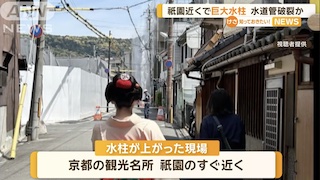Jan 07 (Nikkei) - From cooking to playing instruments, education businesses are cashing in on growing demand for online study as the pandemic dictates that people spend more time at home.
Staff at startups have been racking their brains to find ways to retain customers and improve lesson quality to prevent demand from diminishing once the global health crisis comes under control.
Tokyo-based Phonim launched online music lessons services in July. And for Hiroto Shishido, the company's 26-year-old president, the pandemic was the "tailwind" that launched the service.
The University of Tokyo graduate, himself a piano devotee, had been working on how to offer convenient and high-quality music lessons to busy workers since establishing the company in 2017.
He figured out that focusing on providing lessons solely online is the key to success as tenant fees for buildings with soundproof chambers are a major burden for music lesson providers. "If we can cut out tenant costs, we can offer more money for first-class musicians to teach our students," Shishido said. In fact, Phonim's instructors are well-known musicians who have won awards in music competitions overseas.
Shishido made lessons as simple as possible so busy students can easily continue learning. Each lesson takes six minutes or less, with students uploading their assignments and teachers sending them feedback after.
The service is based on two main revenue sources: lesson subscriptions and rental fees for 'silent' music instruments that students can play in an apartment at night. Lesson fees are 1,980 yen ($19) a month or more, while rental fees are around 5,000 yen a month.
As of December, Phonim had hundreds of subscribers, mostly in their 30s or 40s which is comparatively young given that the majority of students who attend music schools offering face-to-face instruction are in their 60s or older.
Junko Nakagawa, a Phonim user, said she could finally start learning violin, an instrument she had longed to study for years. She takes lessons late at night after work and while doing housework. "Phonim is a good fit for me as it enables learning the violin while working and raising a child," said Nakagawa, who plans to keep using the service even after the pandemic ends.
Shishido said the company remains unprofitable for now, but he is aiming for a turn into the black by spring and increase total subscriptions to 2,500 by the end of 2021.
Japan is in the middle of a third wave of coronavirus infections as daily case numbers hit a record high. The government on Dec. 14 decided to suspend its Go To travel campaign of discounts to encourage people to move about the country and boost the economy through domestic tourism.
But with the suspension, people are again staying home and many are expected to avoid some end-of-year customs such as traveling to their hometowns or visiting their parents. For them, online hobbies are one of the best options for filling lonely hours at home during the holiday season.










